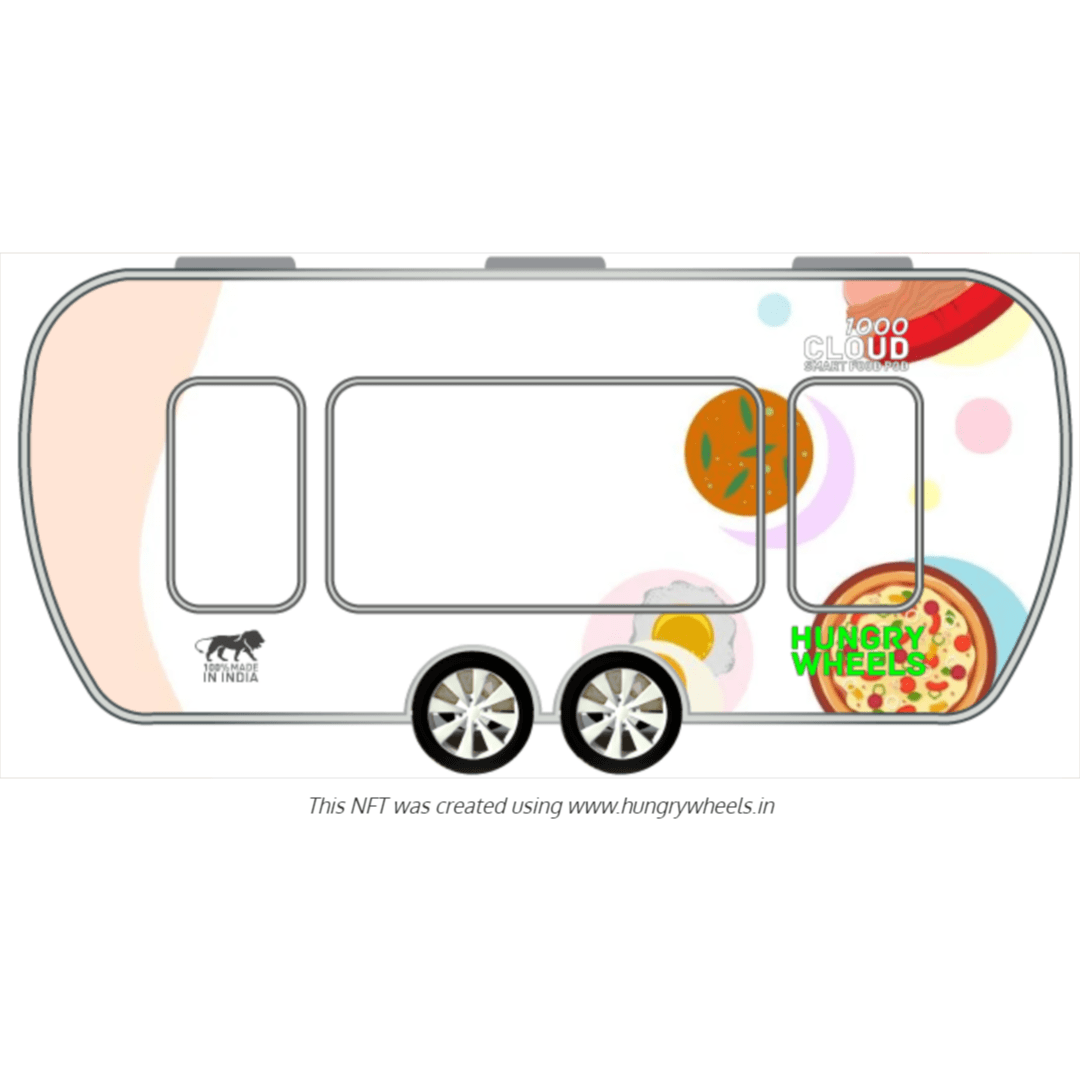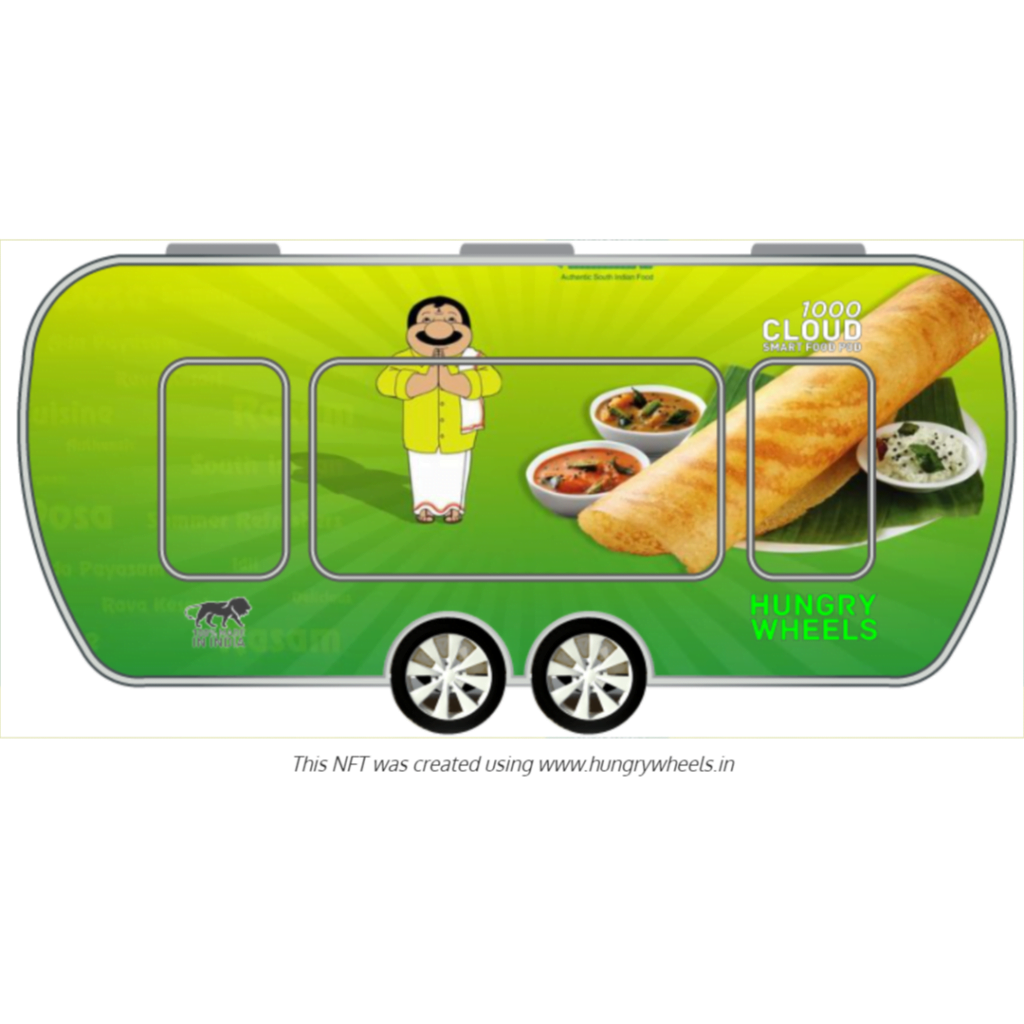In recent years, food pods have emerged as a popular alternative to traditional food trucks, offering unique benefits and opportunities for food entrepreneurs. While food trucks have long been a staple of the mobile food industry, food pods provide a distinct advantage in certain areas. In this blog, we’ll explore the benefits of food pods over food trucks and why they’re becoming increasingly popular among both vendors and customers.
Food trucks have become a beloved staple in the culinary scene, offering delicious and convenient eats on wheels. But a new trend is emerging, taking the mobile food experience to the next level: food pods. These vibrant clusters of multiple vendors offer several advantages over traditional food trucks, potentially shaping the future of street food.
Food Pod Benefits over Food Truck

If you want to create Food POD NFT like this check this amazing tool https://hungrywheels.in/brand-your-pod/
Greater Flexibility in Location:
Unlike food trucks, which are typically confined to designated parking spots or streets, food pods can be set up in various locations, including parking lots, public parks, and vacant spaces. This flexibility allows vendors to reach different customer demographics and adapt to changing market demands more easily.
Lower Overhead Costs:
Food pods generally have lower overhead costs compared to food trucks. Instead of investing in a vehicle and kitchen equipment, vendors can rent or lease a small space within a food pod, significantly reducing startup and operating expenses. This cost-effectiveness makes food pods an attractive option for aspiring food entrepreneurs with limited capital.
Collaborative Atmosphere:
Food pods often foster a collaborative and communal atmosphere among vendors, creating a vibrant food scene that attracts customers. By sharing a common space, vendors can collaborate on events, cross-promote each other’s businesses, and exchange ideas and resources, leading to a more dynamic and supportive community.
Enhanced Customer Experience:
Food pods offer a unique dining experience for customers, allowing them to sample a variety of cuisines in one location. With multiple vendors operating within the same pod, customers have the opportunity to explore diverse culinary offerings and enjoy a communal dining experience with friends and family.
Creative Design and Branding:
Food pods provide vendors with creative freedom in designing their spaces and branding their businesses. From custom signage and decor to innovative menu concepts, vendors can showcase their unique personalities and culinary styles, attracting customers with visually appealing and Instagram-worthy settings.
Regulatory Compliance and Permitting:
Food pods may face fewer regulatory hurdles and permitting requirements compared to food trucks, as they operate within a fixed location and are often subject to the same regulations as brick-and-mortar restaurants. This streamlined process can save vendors time and resources, allowing them to focus on serving delicious food to their customers.
Increased Variety and Foot Traffic
Imagine a food court on wheels, where diverse culinary options are just steps away. Food pods bring together multiple vendors, offering a wider range of cuisines and catering to various preferences. This diversity attracts a larger customer base, creating a “one-stop shop” experience that benefits both vendors and diners.
A Collaborative Community: Shared resources and Support
Food pod operators often work together, creating a sense of community and shared purpose. They can share resources like utilities, waste management, and even marketing efforts, reducing individual costs and fostering collaboration. This cooperative environment can also provide valuable support and mentorship for new vendors entering the food scene.
Enhanced Amenities: A More Comfortable Dining Experience
Unlike traditional food trucks with limited seating, food pods often offer dedicated dining areas, including tables, chairs, and sometimes even restrooms. This creates a more comfortable and inviting space for customers to enjoy their meals, encouraging longer stays and potentially higher spending.
Sustainability and Environmental Benefits:
Food pods can be designed and operated with sustainability in mind. Shared resources, reduced energy consumption due to clustered vendors, and the potential for utilizing eco-friendly construction materials can contribute to a smaller environmental footprint compared to individual food trucks operating independently.
FAQ: Food Pod Benefits over Food Truck
What is a food pod?
A food pod is a collection of small food vendors operating out of individual units within a shared space or location, offering a variety of culinary options in one convenient setting.
How do food pods differ from food trucks?
Food pods provide vendors with a fixed location to operate from, whereas food trucks are mobile and move from one location to another. Additionally, food pods often foster a collaborative atmosphere among vendors, whereas food trucks operate independently.
What are the benefits of food pods over food trucks?
Food pods offer greater flexibility in location, lower overhead costs, a collaborative atmosphere among vendors, enhanced customer experiences with a variety of culinary options, creative design, and branding opportunities, and simplified regulatory compliance and permitting processes.
How do food pods contribute to a vibrant dining scene?
Food pods bring together a diverse range of culinary offerings in one location, creating a vibrant and dynamic dining scene that attracts customers seeking unique and delicious food experiences.
Are food pods subject to the same regulations as food trucks?
Food pods may face fewer regulatory hurdles and permitting requirements compared to food trucks, as they operate within a fixed location and are often subject to the same regulations as brick-and-mortar restaurants. However, specific regulations may vary depending on the jurisdiction.
Can food pods accommodate different dietary preferences and restrictions?
Yes, food pods typically offer a variety of culinary options to cater to different dietary preferences and restrictions, including vegetarian, vegan, gluten-free, and allergen-free options. Customers can explore diverse cuisines and find options that suit their individual needs.
How can I find food pods in my area?
Food pods are often located in popular gathering spots such as parks, entertainment districts, or designated food pod areas within cities. You can also search online or check local event listings to find information about food pods operating in your area.
Are you Intrested to know more about Food POD Contact us. Hungry Wheels Food Pods offer an unbeatable blend of sustainability, safety, support, and convenience, making them the optimal selection for mobile food vendors. With zero emissions, a family-friendly atmosphere, official approval, flexible financing, easy compliance, and extensive insurance coverage, Hungry Wheel sets the benchmark for excellence in the mobile dining sector.
For any further inquiries or to discover the innovative features of Hungry Wheel’s eco-friendly food pods, please feel free to reach out. We’re dedicated to aiding you in revolutionizing your mobile food enterprise. Contact us today to embark on your journey towards sustainable and prosperous mobile dining ventures.
Conclusion:
While food trucks continue to play a significant role in the mobile food industry, food pods offer distinct advantages that appeal to both vendors and customers. With greater flexibility in location, lower overhead costs, a collaborative atmosphere, enhanced customer experiences, creative design opportunities, and simplified regulatory compliance, food pods are reshaping the way we dine and interact with local food businesses. As the popularity of food pods continues to grow, they are poised to become a staple of the modern culinary landscape.
Mobility architect, system designer, and ecosystem builder
Since 2012, he has developed various scalable vehicle platforms and solutions for retail, logistics, and defense. As a possibilist, futurist, and innovator, Vikram’s designs have powered the success of Food POD mobile kitchens at ITC, TAJ Hotels, Qmin, Manipal Group, and more.





